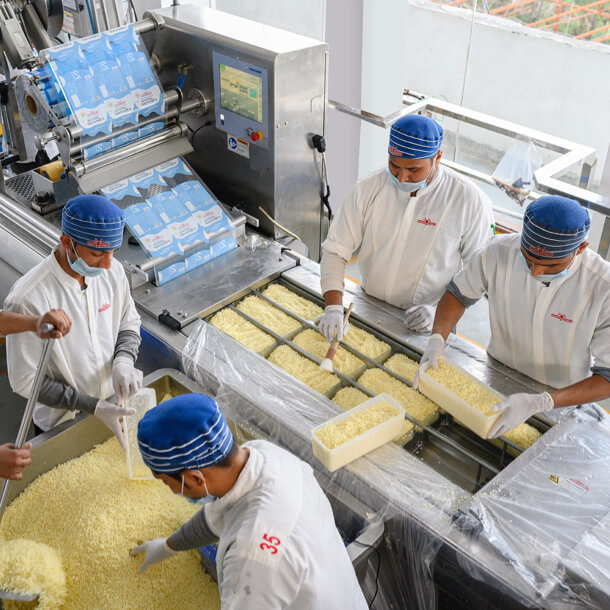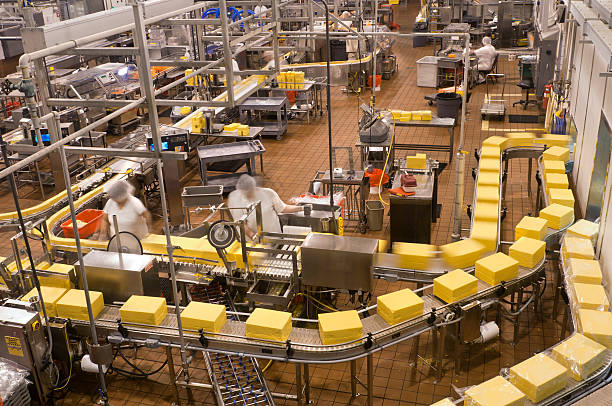An In-Depth Look at Cheese Production: Active Ingredients, Approaches, and the Future of Craftsmen Cheeses
The complex procedure of cheese manufacturing is a fascinating merging of art and scientific research, where premium milk, rennet, and particular microbial cultures function as fundamental elements. Standard techniques, such as salting and aging, are enhanced by contemporary innovations that reply to evolving customer preferences. As the sector increasingly prioritizes sustainability and openness, the future of artisan cheeses promises to mirror both heritage and progress. Recognizing the nuances of these practices increases compelling concerns regarding the instructions of cheese production and its effects for quality and credibility. What lies in advance in this progressing landscape?
Trick Ingredients in Cheese Production
A range of essential components play an essential duty in cheese production, each contributing to the end product's taste, texture, and character. The primary component in cheese is milk, which can originate from numerous resources, consisting of cows, goats, and lamb - cheese factory melbourne. The sort of milk made use of considerably affects the cheese's taste and uniformity; as an example, cow's milk usually generates creamier cheeses, while goat's milk frequently creates tangy ranges
An additional essential component is rennet, an enzyme utilized to curdle the milk, dividing it into curds and whey. The source of rennet can be animal, veggie, or microbial, each giving unique attributes to the cheese.
Salt not just improves the flavor yet additionally serves as a preservative, inhibiting the growth of undesirable bacteria. In addition, numerous flavoring representatives, such as natural herbs, spices, or also smoked timber, can be included in develop special artisanal cheeses. Together, these active ingredients develop the foundation of cheese manufacturing, setting the phase for diverse and abundant cheese varieties.
Standard Cheese-Making Strategies
Making use of standard cheese-making techniques, craftsmens worldwide maintain time-honored approaches that have been given with generations. These strategies usually highlight making use of top notch, locally sourced milk, which is main to the distinct tastes and textures of artisanal cheeses. The procedure usually starts with the cautious home heating of milk, complied with by the enhancement of cultures and rennet to assist in coagulation.
Once the curds form, they are reduced, permitting whey to drain, an important action that influences moisture material and appearance. The curds are then carefully mixed and cooked to accomplish the wanted suppleness. Afterward, they are drained pipes and pressed right into molds. Salting is an essential facet of this process, enhancing taste while also acting as a chemical.
Aging, or affinage, is another vital part, throughout which cheeses develop their characteristic fragrances and preferences. Artisans might utilize certain maturing settings, making use of humidity and temperature level controls to fine-tune celebrity's account. The commitment to these typical techniques not just supports local economic situations however additionally contributes to the abundant variety of cheese varieties found globally, celebrating social heritage and artisanal workmanship.
Modern Developments in Cheese Production
Just how have technical improvements changed cheese manufacturing in current years? The assimilation of modern-day innovation has actually revolutionized both the effectiveness and top quality of cheese manufacturing.
In addition, innovations in microbiology have actually made it possible for cheesemakers to select specific bacterial societies and enzymes, enhancing flavor accounts and boosting rack life. The usage of sensing unit innovation for monitoring fermentation problems has also become common, enabling for real-time modifications to preserve ideal atmospheres for cheese aging.

These developments not just improve the quality and sustainability of cheese production but also empower craftsmen producers to maintain typical tastes while welcoming modern-day performance. As technology proceeds to advance, the future of cheese manufacturing looks appealing, blending practice with technology.
The Duty of Terroir in Cheese
In the world of cheese production, terroir plays a critical function in specifying the distinctive qualities of different cheeses. Terroir, a French term traditionally connected with wine, encompasses the environmental variables that influence farming items, consisting of dirt make-up, environment, and regional plants and fauna. In cheese-making, the distinct attributes of the region where the milk is sourced can convey certain tastes and structures to the end product.
As an example, the grazing problems of milk animals considerably influence the milk's structure, affected by the kinds of turfs and herbs available in a specific locale. This varies not only between nations however additionally between regions within the very same country. Additionally, the microbial areas present in the atmosphere add to the fermentation procedures, bring about varied profiles in taste and aroma.
Cheeses such as Roquefort, Parmigiano-Reggiano, and Cheddar exhibit how terroir can form their identities, making them distinct and frequently safeguarded by geographical signs. As producers progressively acknowledge the significance of terroir, there is a growing focus on sourcing local active ingredients and maintaining traditional methods, making sure that each cheese truly YOURURL.com shows its origin.

Future Trends in Artisan Cheeses
A noteworthy shift is taking place in the artisan cheese field, driven by developing customer choices and technological improvements. Increasingly, customers are being attracted toward unique, top quality products that highlight both sustainability and neighborhood sourcing - cheese for sale online. This pattern is triggering artisan cheesemakers to introduce, concentrating on small-batch manufacturing and the use of typical methods while incorporating contemporary innovation to enhance top quality and security
Furthermore, there is an expanding rate of interest in plant-based and alternate dairy products, pressing typical cheesemakers to discover new opportunities, such as cashew or almond-based cheeses. This change not only satisfies nutritional constraints yet likewise aligns with environmental worries regarding pet farming.
In addition, openness in sourcing and production procedures is coming to be vital. Consumers are a lot more educated and demand traceability, triggering producers to take on more clear labeling methods and take part in storytelling that highlights their approaches and worths.
Conclusion
To conclude, the elaborate procedure of cheese production melds traditional methods with modern innovations, visit our website resulting in a diverse range of flavors and structures. The emphasis on top notch ingredients and the impact of terroir highlight the artistry entailed in cheese manufacturing. As the sector evolves, a concentrate on sustainability and openness will likely form the future of artisan cheeses, providing to a significantly discerning consumer base that values authenticity and workmanship in dairy you can find out more products.